2018 | Generation
Listening to Longing in a Paradoxical World
Fairy-tale-like realities, poetic dialogues and experiences that push at the boundaries of form - the films of the Generation section employ a wide range of strategies to give viewers access to the inner lives of their protagonists. In this interview, section head Maryanne Redpath provides insight into Generation’s diverse programme and eagerly invites abundant feedback from the section’s young viewers.
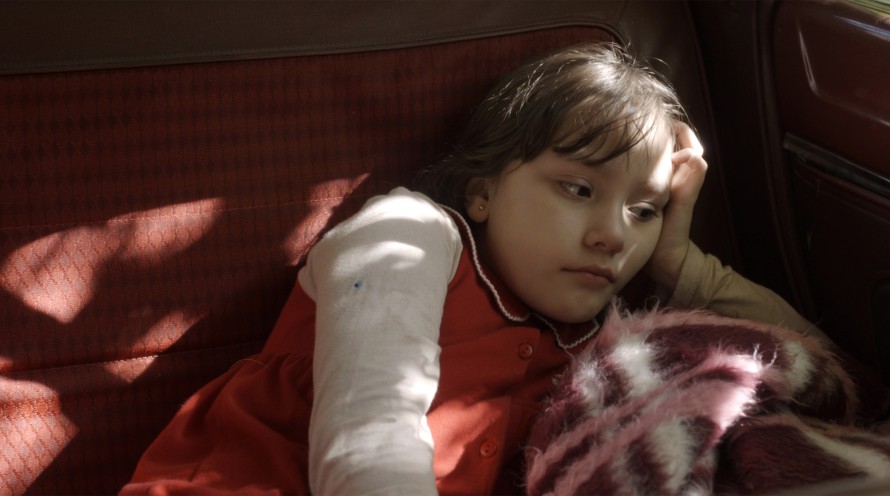
Lara Rogora in El día que resistía (The Endless Day) by Alessia Chiesa
This year the Generation programme features young people who create their own realities and bring the contradictions inherent in the fragile reality of the adult world to light. How do they approach the portrayal of these different living environments?
El día que resistía (The Endless Day) by Alessia Chiesa from the Kplus programme is an example of a film that depicts the contrast between the world of adults and that of children in an impressive manner, while also possessing a particularly fairy-tale-like quality. The story revolves around a nine-year-old girl who lives all alone with her two younger siblings out in a house in the forest. As the big sister, she assumes responsibility for the little ones, taking care of them and reading them fairy tales aloud that enable them to immerse themselves in fantastic worlds. In their dark forest home, the children are forced to fend for themselves and viewers are able to follow along in a wonderful fashion as they do their best to find their way in a world totally devoid of adults. As a viewer, one leaves the cinema with a whole lot of questions running through one’s mind and I am certain that the film also invites children to identify with the characters and to examine their problems on an equal footing.
Are there other examples in the programme for this difference between the world of children and that of adults?
Yes, for instance in the German-Kenyan feature film Supa Modo (R: Likarion Wainaina, Kplus), in which a girl suffering from leukaemia dreams of being a superhero. The girl is incredibly strong and transfers her strength to the grown-ups around her. She gives them the courage to come to terms with the fact that she herself is mortally ill.
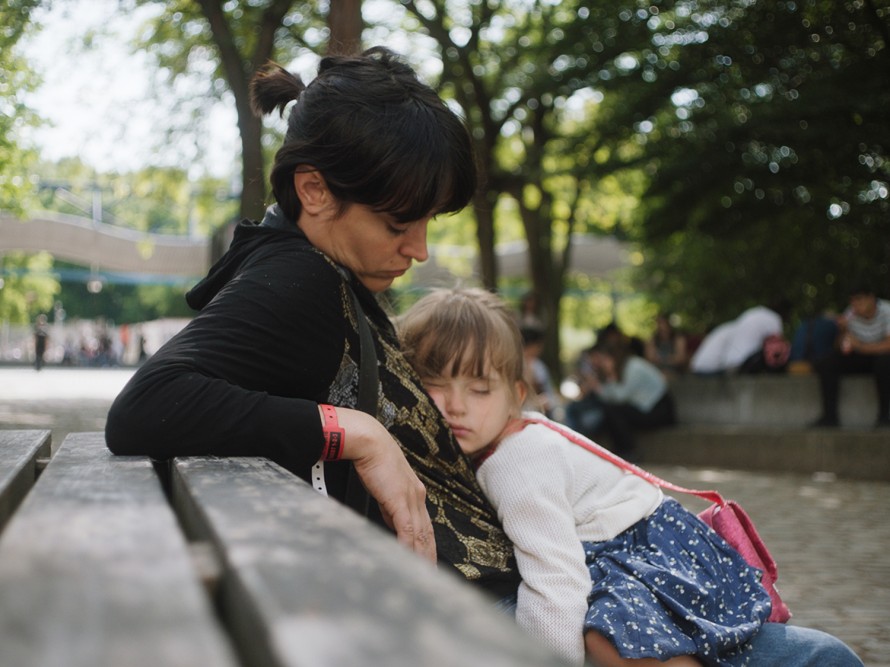
Cléo Demoustierand Vimala Pons in Allons enfants (Cléo & Paul) by Stéphane Demoustier
Another film from the Kplus competition which depicts the differences between the two worlds brilliantly is Stéphane Demoustier’s Allons enfants (Cléo & Paul). Two kids are out and about on their own in Paris and the viewer experiences the children’s world through from their perspective. The kids observe the self-absorbed adults, who move around in a world located above them spatially. Like El día que resistía, Allons enfants manages to tell its story without resorting to heavy-handed moralising. There is no grown-up perspective of the children in the film along the lines of "Oh my god, the kids are all alone!". I’m fascinated by films that manage in a palpable way to enable the audience to share the experiences of their young protagonists on an equal footing. Through the child’s perspective we are able to immerse ourselves in a fantastic, fairy-tale-like world - and to briefly leave our own world, which frequently appears insane or dysfunctional to the eyes of children.
What other worlds can we expect to immerse ourselves in alongside the protagonists featured in the Kplus competition?
We get stranded on the Japanese island of Sado for instance. In Tetsuya Tomina’s Blue Wind Blows, we accompany the daydreaming children Ao and Kii to mysterious places in a coastal village marked by heavy industry. The film treats dreams, loss, monsters and parallel worlds, which children in these cultures perhaps have a keener sense of than we do here in Berlin. In this connection, also comes to mind, a Dutch-Belgian documentary film that portrays four children growing up and working on their families’ farms in Holland. Full of poetry and empathy, the film captures the significance that the farms and nature hold for the kids. Janet van den Brand follows her protagonists through all four seasons and paints a portrait of the agricultural life that eschews false romanticism. The film literally deals with life and death - the cameras are rolling as animals are born and slaughtered. Of course all of this is shown with a great deal of respect. This is a very important film for city kids in particular. The viewers experience all of these processes at very close range and at the end of the film they now know where the meat and produce they buy at the supermarket comes from. A very important statement.
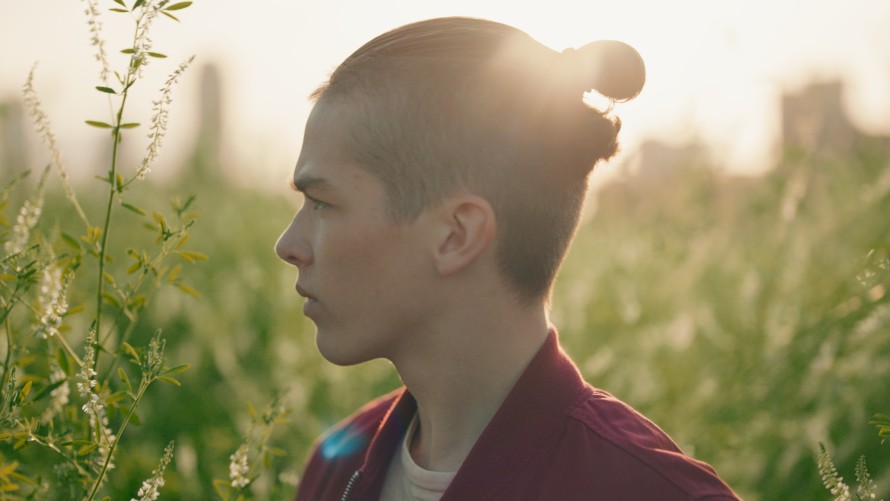
Bas Keizer in Cobain by Nanouk Leopold
Films of the 14plus competition, which are recommended for children aged 14 and up, deal with definitions of obligation, especially as regards family structures...
Two strong characters come to mind in that context. First there’s Cobain from the mother-son story of the same name, who is torn between the prospect of a new life in a foster family - in a real home, maybe even one that provides a sense of safety and affection - and concern for his drug-addicted mother, who everyone else except him has already given up on. In a drastic yet at the same time sympathetic manner, the film shows how much energy Cobain spends on his attempts to tear his mom away from the drug scene. In Cobain, Nanouk Leopold tells us the story of a modern-day hero who is forced to grow up very early.
And then I think of the protagonist from Adam (directed by Maria Solrun). Adam is deaf - there is little common ground between the young man’s world and that of his mother, a Techno producer. He can only feel a connection with her through the heavy bass frequencies of her music. Adam longs for a normal life, alas one which is not in the cards for him. His gravely ill mother longs to break out of the hospital so that she can take her own life - and she demands that Adam help her. The expectation of accountability that one generation places on another is turned completely upside-down in both films. In addition, like other films in the 14plus competition, both films pose the question of what a young person desires, in vastly different configurations.
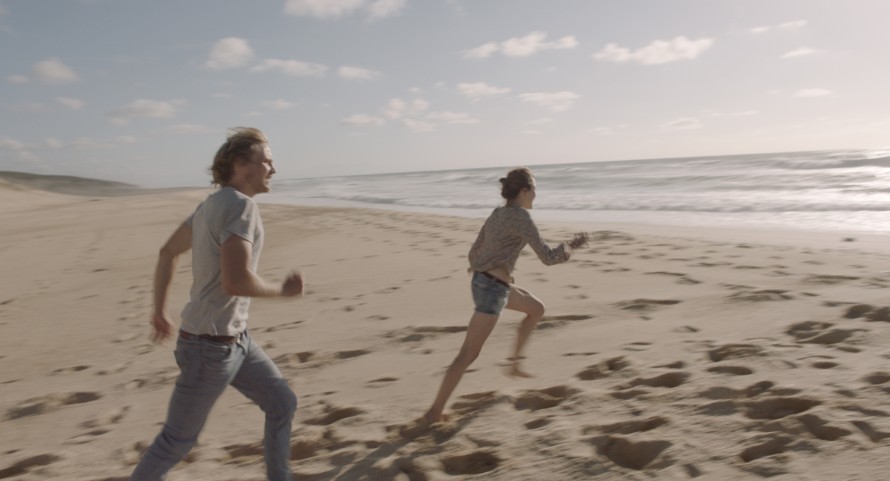
Anton Spieker and Mala Emde in 303 by Hans Weingartner
In Hans Weingartner’s 303, this year’s opening film for the 14plus competition, protagonists Jule and Jan also asks themselves questions of being and longing. They conduct a discourse on love and reveal widely varying facets connected to the concept.
Yes, the especially beautiful thing about 303 is how carefully and slowly the two young adults get closer to one another. A shared road-trip through Western Europe in a camper brings them together. It takes forever to get to their first kiss, while in the meantime they discuss love from every perspective - they discuss monogamy and polygamy, the concept of the traditional family, the influence of hormones all the way to the coercion exercised by capitalism. The film is full of fine details and everything takes place on the streets of Europe, across the continent. By the way, the road movie genre is a really good description for films that treat coming-of-age scenarios. Growing up is also a journey when it comes down to it.
A further interesting discourse on love can be found in the feature film Les faux tatouages (Fake Tattoos, directed by Pascal Plante) from Canada, a real punk romance, in which the two protagonists find their mode of communication in music. The love between Théo and Mag has an ‘expiration date’ though, it’s limited to a period of two weeks. Although Mag notices that something is troubling Théo, she doesn’t ask him about it and accepts the circumstances as they are. There’s a lot of grace and maturity in her attitude and that’s also how the film chooses to treat love. Mag and many other great protagonists this year are exploring different kinds of obligation and connection.
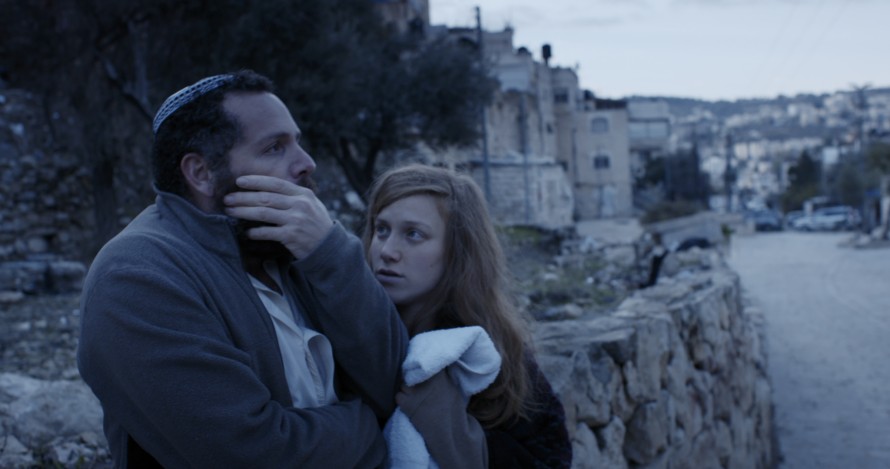
Gal Toren and Avigayil Koevary in Para Aduma (Red Cow) by Tsivia Barkai Yacov
Several of the films in the 14plus programme also deal with discovering one’s own sexuality. Has there been a development in relation to this topic over the course of the past couple of years?
Para Aduma (Red Cow, directed by Tsivia Barkai Yacov) comes to mind here. A girl is growing up in an Israeli settlement with her patriarchal father. In a very fundamentalist setting, she falls in love with a woman and embarks on a very passionate relationship with her, acting against her faith and her father’s convictions. We were interested in the way the film observes how the young woman frees herself from the constricting corset of her surroundings and what consequences her acts of resistance entail.
As far as the subjects of the discovery of one’s personal sexuality or gender issues are concerned, I cannot distinguish any sort of linear development in our film selection however. These themes come up again and again, simply as a matter of co-incidence, since we have a lot of coming-of-age films in the programme of course, especially in 14plus, and they always deal with discovering sexuality as well. It’s also just as coincidental that 51% of our directors are female. I am very aware that this is a positive sign though. And that’s not about trying to meet a quota for me. The quota for women could be even higher.
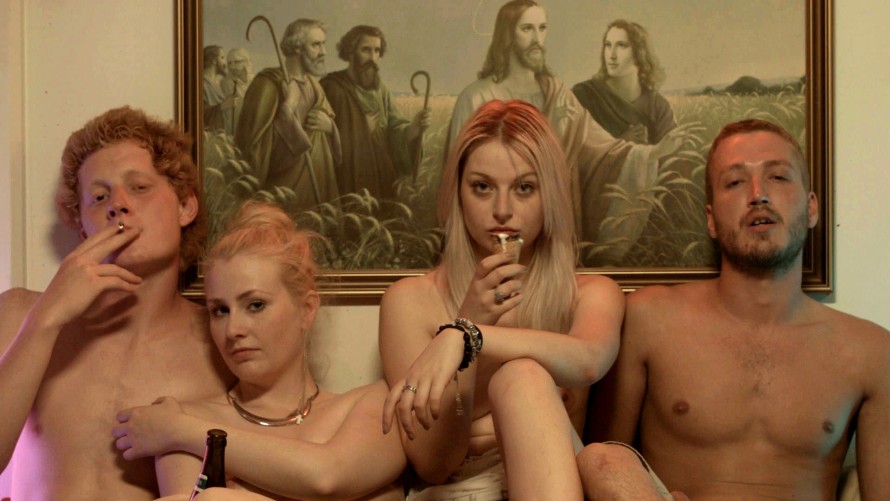
Danmark (Denmark) by Kasper Rune Larsen
Did you notice any exciting new cinematic approaches during your programme selection which you see as perhaps also representing a challenge for young audiences?
Most definitely, I can think of various examples in this regard. With Danmark (Denmark, directed by Kasper Rune Larsen) for instance we have a highly modern film in the 14plus programme. A so-called “slacker film”, in which the viewers watch a group of aimless young people as they do nothing, basically. On a cinematic level, this is executed in a very intelligent way and I think these new cinematic impulses from Denmark are exciting. There are a lot of young filmmakers out there that aren’t afraid to try out new things.
A further key film in our programme comes from another new wave: the South African production High Fantasy. Director Jenna Bass has created a real work of art here, on a stylistic, formal and thematic level as well. The film was shot almost exclusively using smartphones, thus transforming the characters themselves into cinematographers engaged in mutual documentation of one another. In the film, a mysterious body swap occurs that raises questions of identity as well as the question of who is who and who is the one filming at the moment. The director explores the boundaries of the digital world and tests how far we can go in cinema and film in this regard. At the same time, High Fantasy is a highly political film that expresses a position regarding South Africa’s post-apartheid present while raising questions on the subject of body politics.
The short film Juck, directed by Olivia Kastebring, Julia Gumpert and Ulrika Bandeira and screening in the 14plus programme, also deals with body politics in a manner far removed from the typical clichés. The piece brilliantly profiles the eponymous Swedish performance collective, which confronts concepts of femininity and feminism in a manner that is both experimental and controversial.
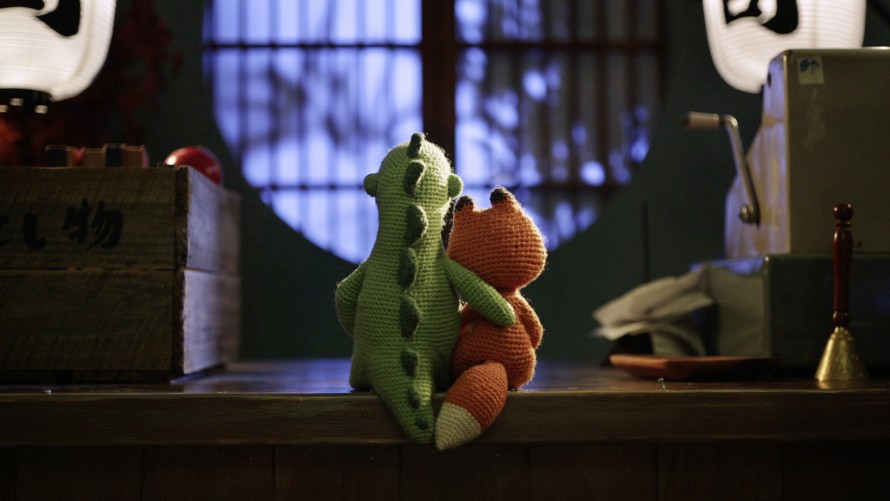
Lost & Found by Andrew Goldsmith and Bradley Slabe
The short film competitions, featuring a total of 35 productions from 25 countries, are a real roller coaster ride in any case, both stylistically and thematically. In this year’s Kplus programme there are a lot of animated films, including atypical ones, such as Phil Brough’s short film Fire in Cardboard City, which creates a three-dimensional world out of cardboard. With Lost & Found by Andrew Goldsmith and Bradley Slabe, we have a veritable romantic drama starring two crocheted stuffed animals in the programme. The world premieres of these short films are going to be very special moments once again - for us but also for our really young viewers. The kids are excited, since it’s often their very first encounter with cinema.
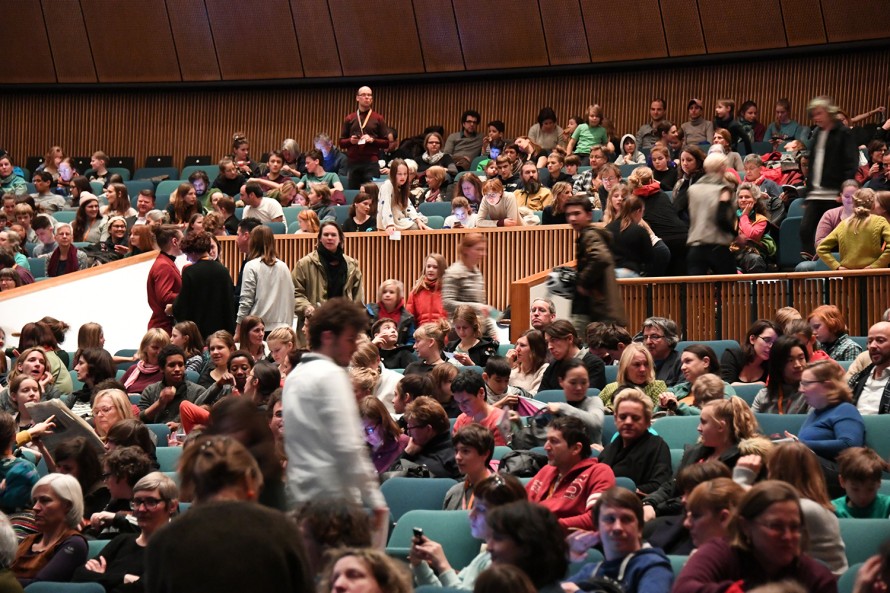
Full house: The Haus der Kulturen der Welt during the Berlinale 2017
Following the film screenings at Generation, the young viewers will once again have the opportunity to share their opinions on the films by filling out your survey forms. How do you engage with their feedback?
The feedback from the audience is very important at Generation and a very rich source of information. The questionnaires, which our viewers can use to submit their feedback after our screenings, are intended to spark reflection. That could simply be a sentence, a question or a feeling, everything is appreciated. A further form of feedback takes place in the context of the Q&As following the film screenings. By the way, the questions and comments from Generation viewers have earned them a special reputation over the years. Filmmakers from all around the world approach me every now and then and say: "I’m a little bit scared of your audience, their questions are always so persistently probing and totally direct." Especially the youngest audience members have a lot of questions and use them to explore the boundary between cinema and their own reality. As an adult, it’s important to listen to young people. I feel like it’s a real privilege to be able to receive this feedback and incorporate it in my work. In the end of course it’s we grown-ups who put together the Berlinale, but we can only keep growing if we listen to the feedback from our guests. Not only when it comes to the film selection and our time together in the cinema, but in our wider lives as well.